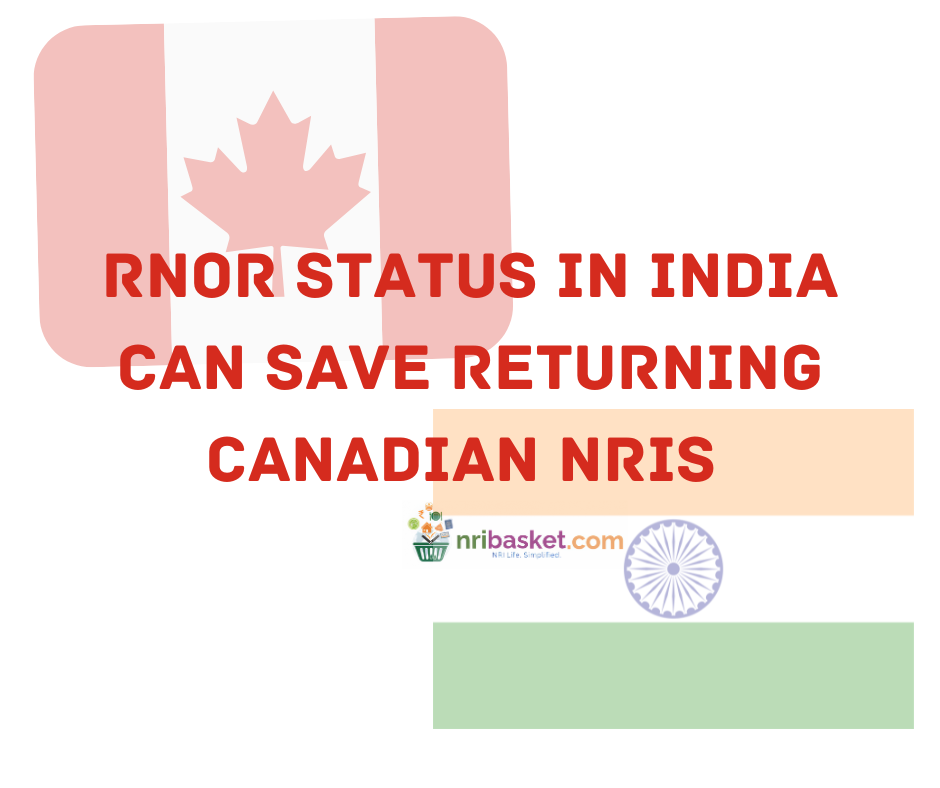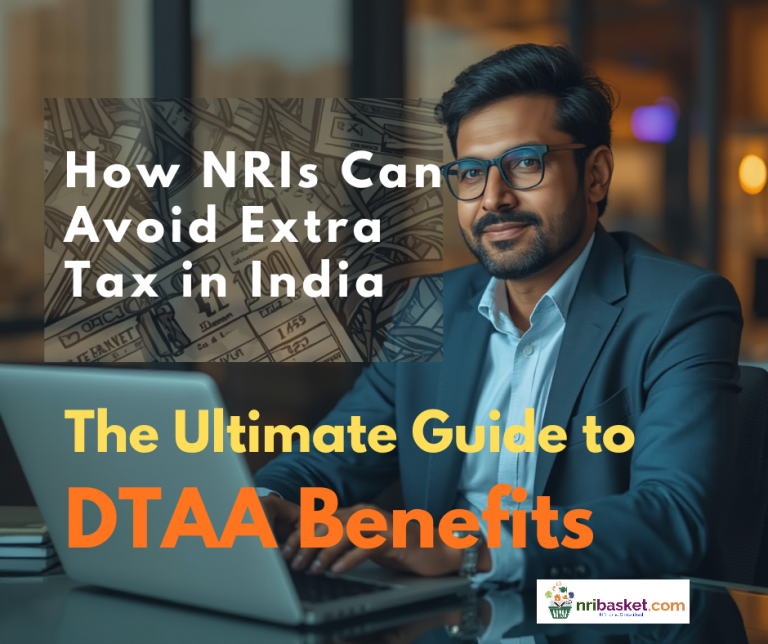
Learn how RNOR status helps NRIs returning from Canada save taxes. Understand eligibility, duration, and tax-free years in India after Canada to protect your global income legally.
When Canadian NRIs decide to move back to India, one of the smartest financial advantages they can use is the RNOR status—Resident but Not Ordinarily Resident. This special tax category helps returning NRIs enjoy partial tax exemptions and avoid paying Indian taxes on their foreign income for a limited period.
Understanding the RNOR status for NRIs returning from Canada is essential for tax planning and wealth protection. It can offer 2–3 tax-free years in India after returning from Canada, covering income from Canadian pensions, properties, or investments. This guide explains how RNOR works, who qualifies, and how you can legally save thousands of rupees in taxes when settling back in India.
Long Answer: RNOR is a special tax status in India that applies to returning NRIs. It helps them enjoy tax benefits for a few years after moving back from countries like Canada, reducing tax on foreign income.
Long Answer: To qualify, you must be a resident in the current year but have stayed in India for less than 730 days in the previous seven years or have been an NRI for nine out of the last ten financial years.
Long Answer: Depending on your stay pattern, you can usually retain RNOR status for up to two or sometimes three years after returning from Canada before becoming a fully taxable Indian resident.
Long Answer: RNOR individuals are taxed only on income earned in India. Any foreign income, like interest, rent, or investments held abroad, remains tax-free during the RNOR period.
Long Answer: RNOR is a transitional tax category valid for a limited time after you return to India. Once you meet the residency requirements, you automatically become a regular resident for tax purposes.
Long Answer: If you have income or assets in Canada—like pension, investments, or rental income—these won’t be taxed in India while you hold RNOR status, saving significant tax amounts.
Long Answer: Pensions received from Canadian sources remain tax-free in India during your RNOR years. However, you may still need to report and pay taxes in Canada based on local laws.
Long Answer: Any interest earned from Canadian bank accounts or overseas deposits is not taxable in India while you hold RNOR status, offering strong savings for returning NRIs.
Long Answer: RNORs are allowed to maintain and operate foreign bank accounts or investments abroad without attracting Indian tax liability on income generated from those assets.
Long Answer: The number of tax-free years depends on how long you stayed outside India. Typically, returning NRIs enjoy 2–3 “tax-light” years where foreign income isn’t taxed due to RNOR status.
Long Answer: If you rent out property in Canada and hold RNOR status, the rent is not taxable in India. But Canada may still levy tax as the property is located there.
Long Answer: If you earn income in India—like salary, rent, or capital gains—you must file an income tax return. But you need not report or pay tax on foreign income during RNOR years.
Long Answer: RNORs can invest in Indian mutual funds, property, or fixed deposits just like residents. Their foreign income remains exempt, but Indian income is taxable as usual.
Long Answer: RNORs are taxed in India only on income earned or received in India. Their global income—like salaries or investments abroad—is excluded from Indian taxation.
Long Answer: The RNOR period depends on how many days you were in India in the past seven years. The less time you spent, the longer you can retain RNOR benefits.
Long Answer: RNORs can freely remit funds abroad from NRE or FCNR accounts. For large transfers, RBI guidelines apply, but there’s no tax implication for foreign-sourced income.
Long Answer: Capital gains from shares or properties sold in Canada remain untaxed in India during the RNOR period, though they may be taxed under Canadian law.
Long Answer: You become RNOR if you were an NRI for 9 out of the previous 10 years or stayed in India for 729 days or less during the last 7 years before the current financial year.
Long Answer: RNORs can use the India–Canada DTAA to ensure income isn’t taxed twice. This treaty helps manage tax obligations efficiently in both countries.
Long Answer: Dividends received from Canadian companies are not taxable in India while holding RNOR status, helping you retain full foreign investment returns.
Long Answer: India no longer levies wealth tax, and during RNOR years, there’s no tax on foreign assets such as property, savings, or investments abroad.
Long Answer: Once RNOR status expires, you’re treated as an ordinary Indian resident. From that year onward, all global income, including foreign assets, becomes taxable in India.
Long Answer: RNORs may continue holding their NRE or FCNR accounts. The interest earned remains tax-free in India during the RNOR phase.
Long Answer: RNOR benefits apply to NRIs from any country, including Canada, USA, or UK, who meet the stay and residency criteria set by Indian tax law.
Long Answer: RNORs are not required to disclose or pay tax on foreign assets until they become ordinary residents, offering privacy and simplicity during transition years.
Long Answer: NRI status applies while living abroad; RNOR bridges the gap when returning. It offers NRI-like tax benefits while being legally a resident under Indian tax law.
Long Answer: Any funds transferred from Canada to India during RNOR years—like savings, investments, or gifts—are not taxed in India, as they count as foreign-sourced money.
Long Answer: RNORs can gift money from foreign accounts to relatives in India. These gifts are tax-free for both parties if given to close family members as per Indian tax law.
Long Answer: Since RNOR income from abroad isn’t taxed in India, you only pay tax in Canada (if required), avoiding double taxation and simplifying compliance.
Long Answer: You must pay advance tax on Indian income like rent, salary, or capital gains. No tax is due on foreign income during the RNOR period.
Long Answer: RNORs investing in Indian mutual funds are taxed on profits earned in India. However, returns from foreign investments remain tax-free during RNOR years.
Long Answer: If you withdraw a pension lump sum from Canada and remit it to India while being RNOR, it’s exempt from Indian tax, offering major savings for retirees.
Long Answer: Any property, money, or investments inherited abroad are not taxable in India for RNORs, making estate transitions smoother and tax-free.
Long Answer: Interest earned on FCNR (Foreign Currency Non-Resident) deposits remains tax-free in India during RNOR years, making it a smart savings option for returnees.
Long Answer: Before returning from Canada, time your move to maximize RNOR years, repatriate funds, and restructure investments while income remains tax-free in India. Consulting a tax advisor ensures you save the most.




